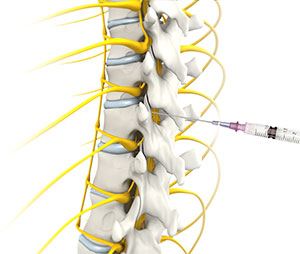
What is Epidural Steroid Injection?
Epidural steroid injection (ESI) is a minimally invasive approach to treat inflammation of spinal nerves that causes pain in the neck, arms, back and legs. This technique may help relieve back pain in conditions such as spinal stenosis, spondylolysis or herniated discs. In this technique, the steroidal medications are injected into the spinal canal so as to pass down to the inflamed spinal nerve through the epidural space which lies between the covering of the spinal cord and the vertebrae. An ESI contains a corticosteroid medication along with an anesthetic agent which can reduce the inflammation and pain.
Transforaminal ESI is one of the approaches through which medication can be injected as close as possible to the pain site. The procedure lasts around 15-30 minutes. During the procedure, you will be lying on your stomach while sedatives will be given to reduce your anxiety. A local anesthetic injection will be given to numb the area of ESI injection. Then, under the fluoroscopic guidance, your doctor will insert a small-sized hollow needle into the epidural space through the neural foramen (the bony opening through which spinal nerve exits). A radio-opaque dye material is used to reassure proper placement of the needle and flow of the injected medication. Once the needle is in the correct position, the medication is injected into the epidural space.
What are the Associated Complications of Epidural Steroid Injection?
Complications are uncommon but there may be minor risks such as infection, bleeding, discomfort at the site where the needle has been inserted.












